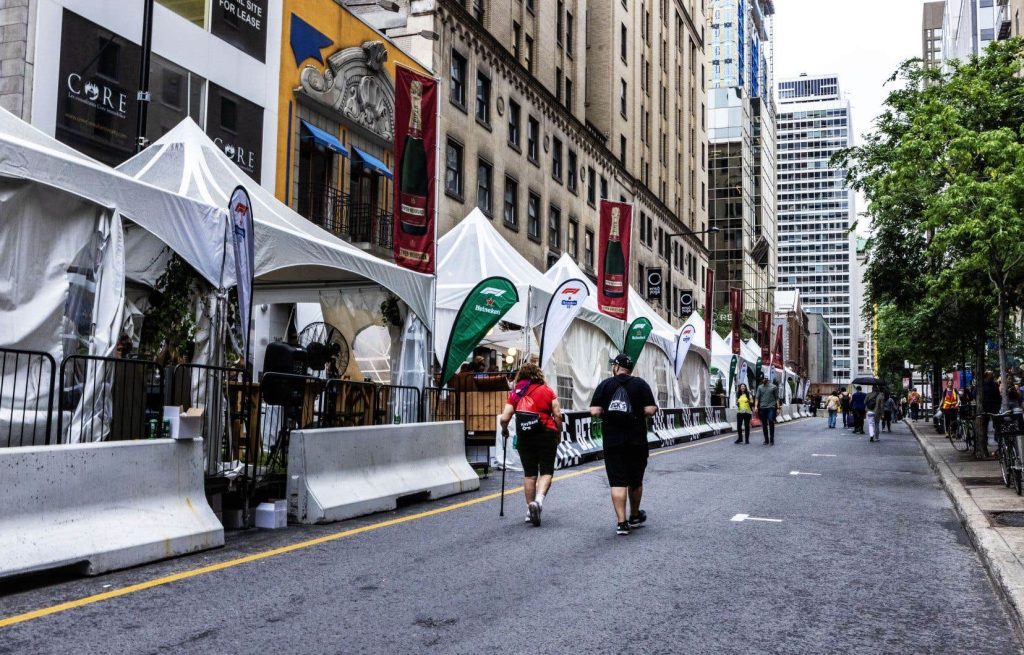
The Formula 1 Grand Prix organization has lost patience with marketers who use the famous car race image to promote their company’s services. In the past year, several Montreal restaurants have been issued warnings to stop using words like “Grand Prix” or “Formula 1” without permission.
For many years, Auberge Saint-Gabriel has been celebrated as the flagship tourist event for speed enthusiasts. Until the pandemic, the establishment, located in Old Montreal, paid the promoter to be the official restaurant of the Grand Prix du Canada. However, after the 2022 Grand Prix, owner Mark Boley claimed that his company had received an official notice from the Formula 1 international body. Ordered to stop using the terms “Formula 1” and “Grand Prix”. Among others, in all its communications, he said.
“We are very surprised and disappointed. We would like to use real words, to say that we are proud to welcome F1 fans. It is a shame to impose restrictions, we will also promote their Grand Prix after all,” commented Mr Boley.
In has undertaken in writing to no longer use these keywords. In all its communications, advertisements and social networks, they had to be replaced with generic expressions such as “race weekend”.
However, Mr Boley believes the changes have not prevented his restaurant from being busier than ever this weekend.
Controversial words
And he is not the only one in this situation. The owner of French bistro Chez Alexandre, Alain Creton, claimed to have recently received an official notice for using the words “Formula One” and “F1” in some places. On his special menu, for example, he replaced those words with a small checkered flag.
“You can’t even use ‘Formula One’ in Elo Hash tag “, he said.
Other downtown restaurants instead said they inherited warnings from the Canadian Grand Prix organization for the same reasons. They scoured their social media to purge controversial words.
Sandra Ferreira, director of operations for the Ferreira Group, which owns Ferreira Cafe, did not receive a message from the Grand Prix organization. However, she saw a video posted on Instagram by the restaurant, which claimed that “F1” would be removed by the social network following a report by Formula 1’s international body for unauthorized use of the brand.
Image to be saved
The Grand Prix of Canada maintains that the car race at the Gilles-Villeneuve circuit is the only official F1 event in Montreal. Activities or festivities in the town these days – especially on Crescent and Peel streets – did not meet the guarantee of the Grand Prix, so the organization decided to tighten the screws on traders who took too many liberties with themselves. Promotional communications.
“We are a franchise, we have this right of use, and when people appropriate and use the event’s logos or official names without permission, sometimes we intervene,” Canadian Grand President and CEO Francois Dumontier pointed out. Prix, in an interview destiny.
“We have values, we have ways of doing things, we do it very professionally and sometimes other organizations conduct things at the Grand Prix that do not respect our values and do not meet the standards”, he adds.
The Montreal Grand Prix also wants to disassociate its image from any activity related to sexual exploitation and prostitution, referring to the source within the organization. Two employees constantly monitor social networks and the Internet to see how and in what context the Grand Prix brand is being used to intervene if necessary.
What legal basis?
The official F1 website states that only the logo is a registered trademark, but also Formula 1, Formula One, F1, FIA Formula One World Championship, Grand Prix, F1 Grand Prix and Formula 1 Grand Prix. The Canadian Grand Prix is also protected, according to the Montreal event website.
These registered trademarks effectively grant a monopoly over the use of these words, said Business Law Professor Benjamin Lehire of TELUQ University. However, he was surprised that the company managed its Montreal businesses this way.
“You are creating a public and international event. In practice, it is too complicated for disciplinary institutions in the Montreal area to simply mention words,” commented Mr. Lehire.
He said he was curious to see what the courts would rule in a case like this, given the notoriety and public nature of the incident. “Isn’t this program for everyone and the economy?” he asked himself.
With Eric Desrosiers





More Stories
Sportswear: Lolle acquires Louis Garneau Sports
REM is still innovative enough to foot the bill
A trip to the restaurant with no regrets for these customers